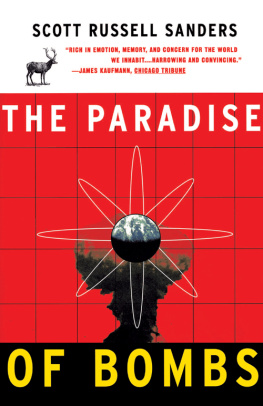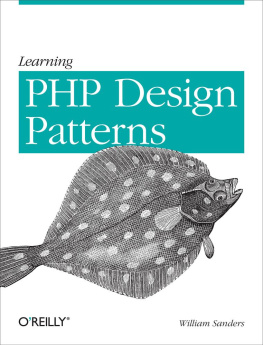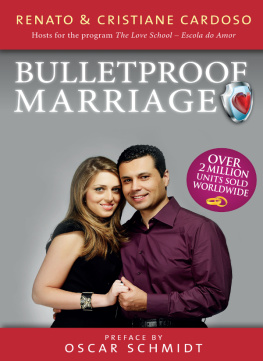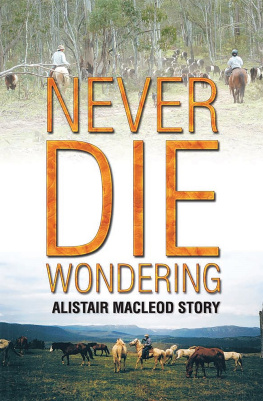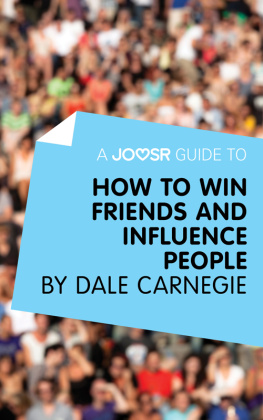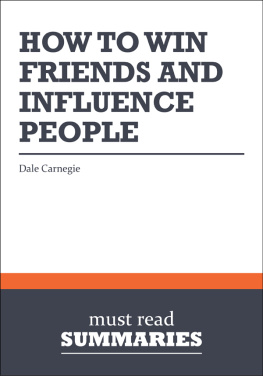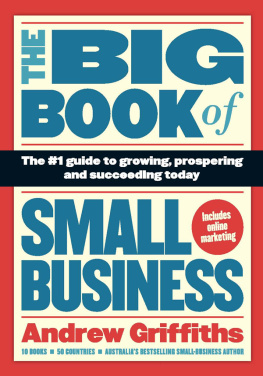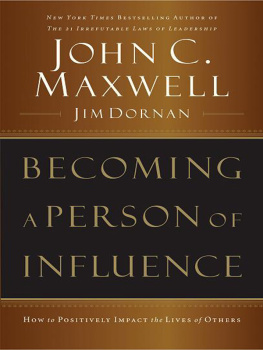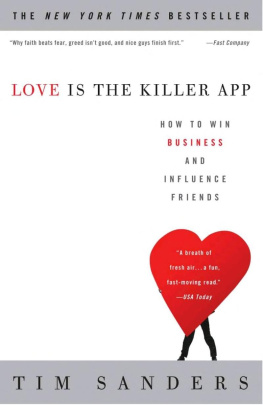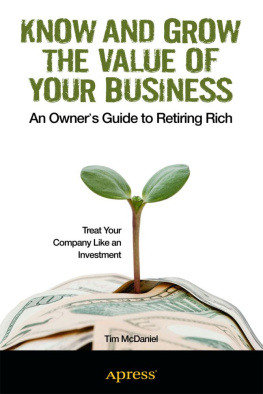
How to Win Business and Influence Friends
LOVE IS THE KILLER APP
CONTENTS
To my wife,,
who is my stronghold
and the love of my life
LOVE IS THE
KILLER APP
INTRODUCTION
Chris had worked with me for only a few weeks when I invited him to join a roundtable meeting with several outside consultants. He sat through the two-hour presentation stony-faced and silent until asked by the lead consultant if he had any comments. Then he nodded impatiently.
This has been totally bush-league, he said. I cant believe that we actually pay you to do this.
He went on to point out many serious flaws in the consultants research, but he wasnt watching carefully enough to see the color drain from the consultants faces. By the time theyd slunk out of the room, Chris had embarrassed me and everyone else present. He didnt quite figure this out until the next months meeting, to which he pointedly wasnt invited.
Had Chris been smarter and nicer, he would have made his excellent points and become a hero for it. Poor Chris. He was armed to the teeth, well educated and wired for decision speed. But he was completely misdirected about how to use his many talents because he was also wired for waralways hostile, always battle-ready. He believed that success in business meant that you crush the weak. You always win. You disdain people who arent as smart as you. You protect everything you knowand everyone you knowlest your weapons fall into enemy hands.
I dubbed him Mad Dog, and the name stuck.
Still, there was something beneath Chriss surface that was truly sweet. In an off-moment, when his defenses were down, he would flash a glimmer of tenderness, a ray of goodness. It was his tough background more than his personality that was making him mean. And he was smart enough to realize that his behavior was his Achilles heel. His world stayed small while others around him were growing their networks before his eyes. He was having a bad ride in his career vehicle.
On top of that, he was miserable. Although he liked his actual work, he was unhappy in the workplace. He felt lost. He was doing what he had been told to doWin at All Costbut it didnt feel like winning.
I told Chris that his attitude was dangerous and that if he didnt believe me, he only had to watch how others treated him. He admitted that hed been repeatedly taken off projects, and he now realized that his peers disliked him. One day he sent me this e-mail: I have to change. Im out of step. Im acting like someone from my fathers generation.
Chris had approached me because he saw that the company listened to me and supported my projects; he knew that people thrived around me, that my network seemed to grow day to day and exponentially quarter to quarter. Chris was ready to listen.
What do I do? he asked.
Be a lovecat, I replied. And that means: Offer your wisdom freely. Give away your address book to everyone who wants it. And always be human.
I then told him about the advantages of being a lovecat, and the three necessary steps to getting there: sharing your knowledge, sharing your network, sharing your compassion.
We went right to work. First I helped him organize his reading. Chris didnt have a lot to offer that was portable to peoplehe could tell you what was wrong but he couldnt help make it right. His learning habits were screwed up. Hed taken such hard subjects in school that the moment he finished his graduate work, he stopped studying. He read only to get him through sleepless nights in his spartan Silicon Valley apartment. So I put him on a new curriculum. Reading is a source of potency, I said, so manage it like an asset. Become a walking encyclopedia of answers for anyone who has questions.
Then I showed him how to share his network. Because he was young, Chris didnt have many contacts. But he had the potential to make new ones; he was dealing with dozens of people on a weekly basis. Soon he was organizing internal meetings for his peers, pollinating them with new ideas hed picked up from his reading and giving them access to his newly found contacts. Recently I saw him walk out of a twenty-person meeting that he had chaired masterfully, just months after wondering how he would ever get airtime at these gatherings. He had built his own little nest.
Mostly we talked about the third step: compassion, or the willingness to demonstrate your humanity at the office. At first Chris resisted because he thought it sounded trite, but the more he thought it over, the more he saw the light. Last month I received an e-mail from him saying, Guess what? I just made someones year. Chris had befriended a woman who worked in a section that was politically at risk. Chris opened up to the woman, whom he admired but had never told, letting her know how great she was at her job, and how valued her contributions were, at the time when she most needed support. I will help you, he said. I will tell people how excellent you are. You should feel secure.
Those words turned her around. She was able to calm herself, which improved her work performance. And it gave Chris such a profound sense of satisfaction that he finally began to enjoy the office environment. He felt he belonged. He felt a sense of purpose.
Today I see a more potent Chris. I see a monster of knowledge, a connector of people, and the kind man who always existed within him, deep inside. Chris has changed his brand. Hes found a way to use love more than hate. He is no longer Mad Dog. He is a lovecat. And being a lovecat is exactly what all of us must do if we want to succeed in the twenty-first century. Read on.
I.
THE
LOVECAT WAY
Not long ago, after I had delivered a speech on the new economy, a woman entering the job market approached me to talk about her career anxiety.
Im not worried that I wont land something good, she explained. Im afraid that work will be too cold and impersonal. What can I do to guarantee Ill be successful but also happy?
The answer? The same advice I gave Chris: Be a lovecat.
At a large last month, I met two men, one in accounting, the other in management; both of them were afraid. It wasnt that they feared the changes going on around themthey feared being left out of them.
How do I drill into this World Wide Web thing? one of them asked. I dont know what to work on because this isnt my skill set. Am I still relevant? Is there anything I have to offer that can add value?
The other man said, I dont think I can compete with these kids flying out of schools loaded with their new-economy knowledge and jargon. Everyone else seems to be jumping into new roles, but I think the world is limiting me with all its rules and biases.
Thats not how the world is run, I replied. Its run via intangiblesknowledge, networks, and compassion.
It never seems to change. No matter how and where I meet these people, and no matter what their age or experience level, I have found one common truth: Men and women across the country are trying desperately to understand how to maintain their value as professionals in the face of rapidly changing times.
Until recently, bizpeople could survive for years without advice, without connection skills, perhaps even without new ideas. But now that the bizworld is moving at a velocity once unheard of, many of us cant keep up. Weve made some bad decisions, weve received some bad advice, we didnt get connected to the right opportunities, were feeling left behind or left out.
Technology has revolutionized our landscape. Before the information revolution, business changed gradually and business models became antiquated even more slowly. The value progression evolved over decades and double decades. You could go to college, get an M.B.A. and work for forty years, and your pure on-the-job knowledge stayed relevant. Relationships were for the most part geo-bound, and only a handful of people comprised your entire business network.
Next page



